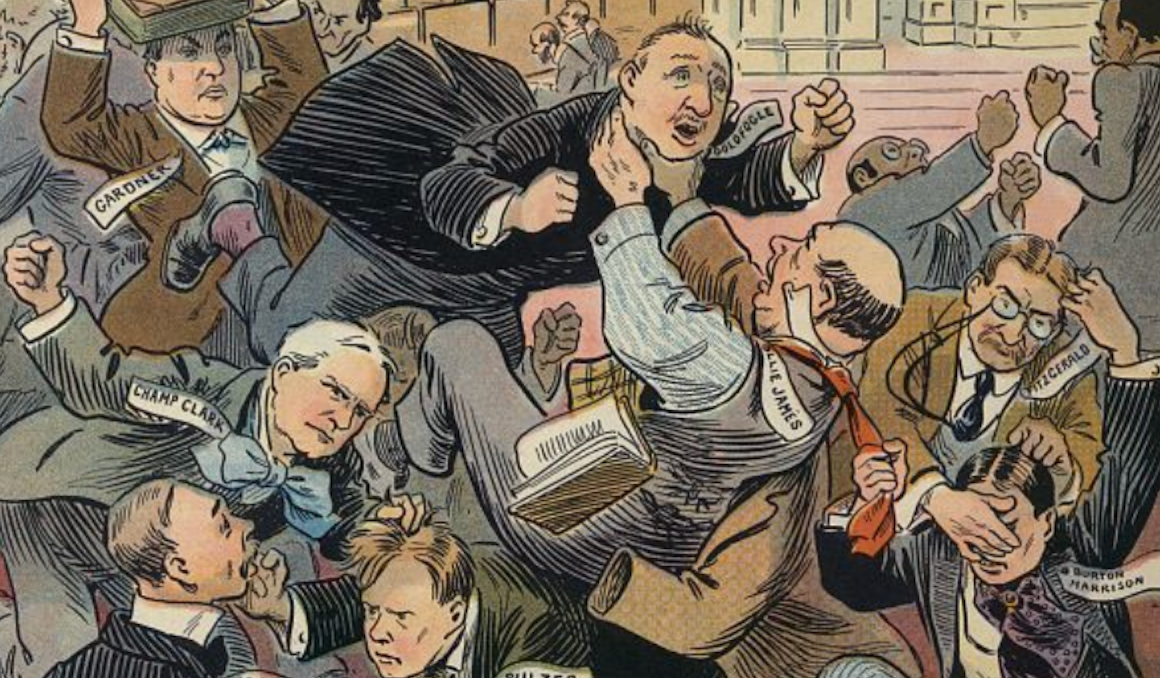How does this all end? Does it? It’s a question a lot of Americans have been asking themselves in the week since an assassin’s bullet missed Donald Trump’s skull by less than a quarter of an inch.
It was, of course, the first time a gunman had put a US president (or former president) in his sights since the 1981 attempt on Ronald Reagan. Most Americans alive today have no memory of that moment.
In some ways, such a long reprieve between assassinations was unusual for the United States.
Despite what President Joe Biden said this week about this kind of violence having “no place” in American society, high-level political killings are deeply woven into US history. At least a quarter of all US presidents have been targeted for death, most of them in the 20th century alone. Four died.
But the atmosphere in America is vastly more polarized and divided than it was even when Reagan was shot, and it doesn’t seem to be getting any better.
To be clear, some degree of polarization by itself isn’t a bad thing. Disagreement is important. You don’t want a society where everyone believes the same thing privately, much less one in which people only feel comfortable saying the same thing publicly. That’s not a functional democracy – that’s North Korea.
The trouble, though, is what experts call “pernicious polarization.” That’s when political divisions harden into increasingly dissociated tribes, each of which views the other not as fellow citizens with different experiences and ideas, but as mortal enemies.
That’s the America we live in today. It’s an America where liberals and conservatives not only don’t trust each other, marry each other, or vote for each other – they barely even see or interact with each other. “Liberal” and “conservative” have gone from being political labels to tribal affiliations, and the tribes live on different islands.
How bad is it? A sweeping historical study of polarization by the Carnegie Endowment found that since 1950, no advanced democracy has suffered levels of polarization as high, or for as long, as what the US has experienced over the past 10 years.
And, soberingly, it also found that no liberal democracy around the world has been able to retreat from extreme polarization with its democracy intact.
It wasn’t always this way. Even during the 1960s and 1970s, when America was convulsed with political violence over civil rights, the Vietnam War, and counterculture, the two parties had a lot more ideological overlap. You could find Democrats who were pro-life and Republicans who were concerned about access to guns. (One of them was Reagan’s spokesman Jim Brady, who after being severely wounded in the 1981 shooting, dedicated his life to passing sensible gun control laws – the 1993 “Brady Bill” is named after him.)
This sort of thing is what political scientists call “crosscutting polarization” – i.e., divisions that slash through party divisions, preventing partisan groups from becoming warring teams. In short: We need more crosscutting again.
The trouble is that a lot of things work against that: geographical segregation along political lines; social media algorithms that reward extreme viewpoints; a decline of local media reporting on issues close to people’s lives; a two-party political system where districts are often heavily gerrymandered, forcing politicians to pander to the extremes rather than to build bridges.
Conflict is a more rational strategy than compromise in almost all areas of our politics even if it’s leading us all off a cliff into a very dark ravine.
Rising political violence is one result. Last year, for example, there were more than 8,000 threats of violence against federal lawmakers, a tenfold increase since 2016.
And as we slouch toward the most contentious and high-stakes election in America’s modern history, most people seem resigned to things getting worse. A poll taken just after the attempt on Trump’s life showed that two-thirds of Americans think the current environment makes political violence more likely.
Is there any hope? Yes, says Murat Somer, a political science professor at Ozyegin University in Istanbul, who co-authored the Carnegie report.
“You have to redefine politics in a way that cuts across those cultural divisions,” he says. One way to do that, he says, is to put the focus back on one of the underlying causes of polarization and lack of trust in institutions in the first place: the decline of social mobility.
“What people have in common across party lines,” he says, “is unhappiness about inequality.”
That’s a start. Other theorists see structural changes that could help. Lee Drutman, a scholar at the New America Foundation, and author of the book “The Two Party Doom Loop”,says tweaking the two-party system by introducing multi-member congressional districts with proportional representation would help to smudge the partisan lines in constructive ways again.
But most of all, it may require a change of mindset – to stop believing that every election is possibly the last one for the America we love (whichever one that may be.)
“It’s important not to think ‘well, if we lose this election it’s over,’” says Somer. “No, it’s not over. A new phase or a new period will start, but it’s not over. It’s very important not to give up after elections, because no president, from either party, can very rapidly or fundamentally transform the country.”
Drutman agrees. “Things may be a little ugly for a while,” he says, “but I do think that there are enough people who are engaged in the work of democratic renewal that we will get to the other side of this. I don't know what the cost of getting to the other side of this will be, but I do think eventually we’ll get to a better political environment.”
What do you think? Can we reduce polarization? Should we? What would you like to see happen? Write us here. If you include your name and location, we may run your response in an upcoming edition of the GZERO Daily Newsletter.
